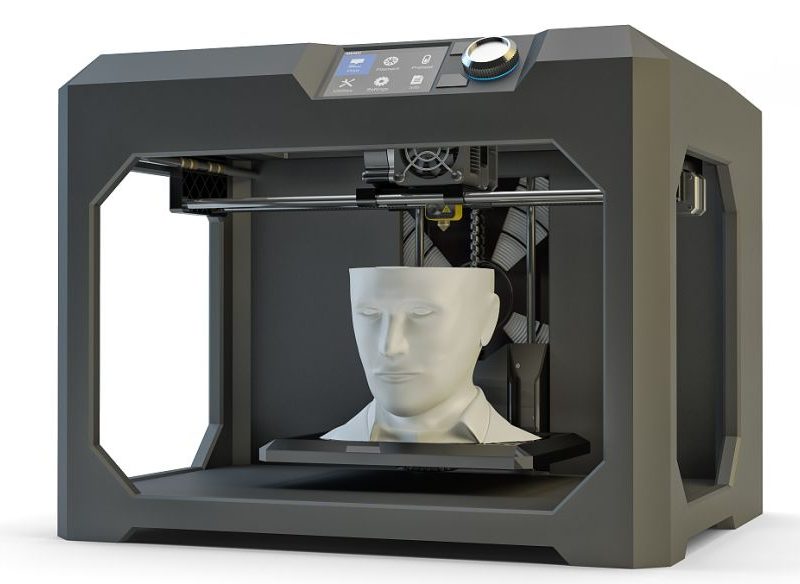
Among desktop 3D printers, there is no doubt that melt extrusion molding 3D printers (FDM) are better in terms of price and versatility, and have now blossomed at home and abroad. However, when higher precision and better surface detail are required, low-cost light-curing (SLA) and digital light processing (DLP) 3D printers have a clear advantage. The increasing number of affordable SLA and DLP 3D printers entering the market has also given rise to the evolution of photosensitive resin material technology, and today we will lead you to take a look at the most widely demanded photosensitive resin materials in the market.
Universal Resins
In the beginning, although manufacturers of 3D printing resin devices sold their proprietary materials, however, in line with the market demand, a large number of resin manufacturers emerged, including MadeSolid, MakerJuice and Spot-A.
In the beginning, the color and performance of desktop resins were very limited, and at that time there were probably only yellow and clear-colored materials. In recent years, the color has expanded to orange, green, red, yellow, blue, white and other colors.
Rigid resin
The photosensitive resins typically used in desktop 3D printers are somewhat fragile and prone to fracture and cracking. To address these issues, many companies have started producing tougher, more durable resins.
For example, Formlabs’ new Tough Resin resin material strikes a balance between strength and elongation, giving 3D printed prototypes better impact resistance and strength, for example to make prototypes of parts that require precision assembly components, or snap joints.
Investment casting resin
The traditional manufacturing process has a long and complex production process and is limited by the mold, which allows for low freedom in jewelry design, especially when compared to 3D printed wax molds, which also have an additional mold making process.
The expansion coefficient of this resin cannot be high and all the polymer needs to be burned off during the combustion process, leaving only the perfect shape of the final product. Otherwise, any plastic residues can lead to defects and distortions in the casting.
In this regard, the equipment manufacturer SprintRay as well as the specialized material manufacturer Fun To Do offer such resins, and the domestic Plasticei Technology has also introduced the resin material CA for investment casting.
Flexible Resins
Manufacturers of flexible resins include Formlabs, FSL3D, Spot-A, Carbon, and Plastec, etc. These resins perform as a medium-hard, wear-resistant, and repeatedly stretchable material.
This material is used in hinges and friction devices that require repeated stretching of parts.
Elastomeric Resins
Formlabs’ Flexible resin is a very soft rubber-like material that is soft when printed in thin layer thicknesses and becomes very flexible and impact resistant in thicker layer thicknesses.
The possibilities for its application are endless. This new material will be used to make perfect hinges, vibration damping, contact surfaces, and other engineering applications for those with interesting ideas and designs.
High Temperature Resins
Undoubtedly, high temperature resins are a research and development direction that many resin manufacturers are keeping a close eye on, because we know that for the liquid resin curing field, what has long plagued the resins towards consumer and industrial applications is the aging problem of these plastics.
Carbon’s Cyanate Ester resins, with heat deflection temperatures up to 219°C, maintain good strength, stiffness and long-term thermal stability at high temperatures and are suitable for molds and mechanical parts in the automotive and aerospace industries.
Currently, high temperature resistant resin materials challenge heat deflection temperature (HDT) up to 289°C (552°F). And Carbon is not alone in this area of high temperature resistant resins, as Formlabs has also introduced its latest high temperature resistant materials.
Biocompatible Resins
Formlabs, a manufacturer of desktop 3D printers, is unique in the field of biocompatible resins. formlabs’ dental SG material complies with EN-ISO 10993-1:2009 /AC:2010 and USP Class VI standards and is safe and friendly to the human environment.
The translucent nature of the resin allows it to be used as a surgical material and as a guide plate for guided frequency drilling. Although it is intended for the dental industry, this resin can also be applied to other fields, especially the medical industry in general.
Ceramic Resins
When it comes to ceramic resins, one has to mention the high-temperature ceramic 3D printing technology in California, USA, where researchers rapidly form ceramics by UV light curing with preceramic monomers – “precursor transformation polymers” – through which the ceramics are manufactured with uniform shrinkage and There is virtually no porosity.
The resins are overcooked after 3D printing to produce dense ceramic parts. The super-strong ceramic materials 3D printed using this technology can withstand temperatures in excess of 1700 degrees Celsius.
The commercially available ceramic light-curing technology mostly involves adding ceramic powder to a light-curable solution and preparing a high solid-phase content, low-viscosity ceramic slurry by stirring at high speed to disperse the ceramic powder evenly in the solution.
Then the ceramic slurry is directly cured layer by layer on the light-curing molding machine, accumulating to get ceramic parts blank, and finally through the preparation process of drying, degreasing and sintering to get ceramic parts.
Daylight Resin
Daylight resins are interesting resins in that, unlike resins that cure under UV light, they can be cured under normal daylight so that they no longer depend on UV light sources and an LCD screen can be used to cure such resins.
This resin is expected to significantly reduce the cost of DLP 3D printing and has a very good future.
